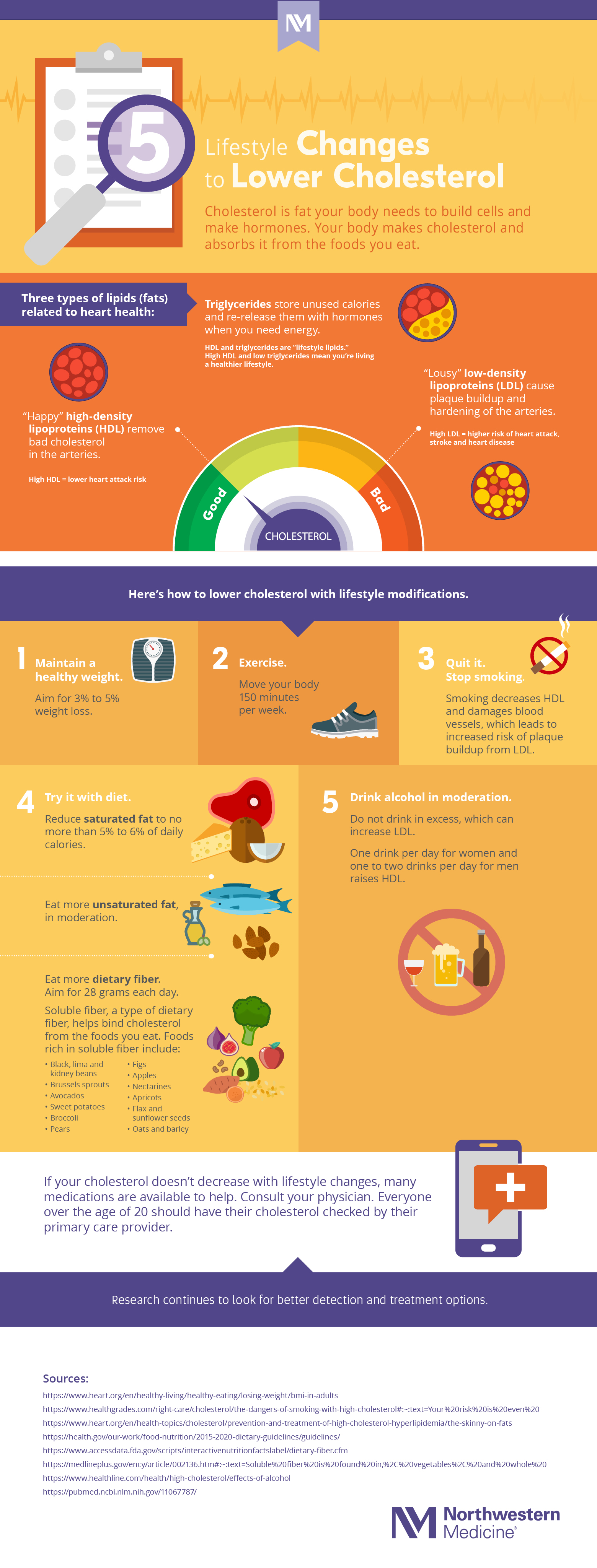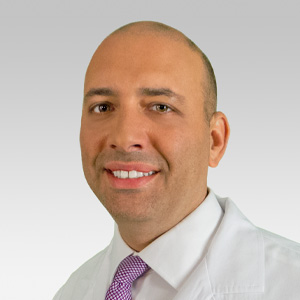5 Lifestyle Changes to Lower Cholesterol
Updated August 2023
From Diet to Drinking
Cholesterol is a naturally occurring type of fat, and it’s not all bad. Your body actually needs it to build cells, hormones and some vitamins.
However, according to Northwestern Medicine Bluhm Cardiovascular Institute Cardiologist Micah J. Eimer, MD, “Everybody should be concerned about cholesterol in excess, especially if you have a strong family history of high cholesterol, hypertension or heart disease. High cholesterol is a major contributor to the risk of heart attack and dying from heart disease, but luckily it is extremely treatable.”
There are three types of cholesterol: low-density lipoproteins (LDL), high-density lipoproteins (HDL) and triglycerides. LDL is considered “lousy” cholesterol because it causes plaque buildup in arteries. If your LDL levels are higher than recommended, you might be at an increased risk of heart attack, stroke and dying from heart disease.
HDL is considered “happy” cholesterol because it helps remove excess “bad” cholesterol. Higher levels of HDL are linked to a lower risk of heart attack.
Triglycerides are more closely associated with lifestyle factors, like weight, diet and exercise. They store the calories you don’t need after you eat and release them via hormones if you need energy. They can also contribute to plaque buildup in your arteries.
Dr. Eimer calls HDL and triglycerides “lifestyle lipids.”
“HDL and triglyceride levels tell your cardiologist how well you are following a healthy lifestyle,” he says. Here’s how to improve the numbers and your heart health.
 Download 5 Lifestyle Changes to Lower Cholesterol
Download 5 Lifestyle Changes to Lower Cholesterol






